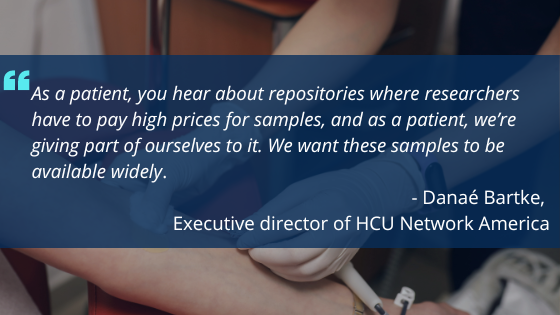Organizations that advocate for patients with rare diseases have a lot on their plates. Their leaders—individuals, often affected by these diseases in some way—wear many hats. They become quick experts in genetics, fundraising, community building, and the needs of researchers working to better understand these disorders and develop new therapies.

Homocystinuria (HCU) Network America recently held its third annual family conference in Bethesda, Maryland, this year in cooperation with fellow advocacy groups Organic Acidemia Association and Propionic Acidemia Foundation.
One priority of HCU at this year’s event: collecting blood samples from patients and affected family members, so researchers have the biomaterials they need to develop therapies. “One of the first questions we get from researchers is ‘Do you have a biobank?’” said Danaé Bartke, executive director of HCU Network America.
This is what led Bartke to Coriell and the National Institute for General Medical Sciences’ Human Genetic Cell Repository. This collection of biosamples at Coriell contains cell lines and DNA representing a wide range of heritable diseases and is always working to add more.
Click to read more.
